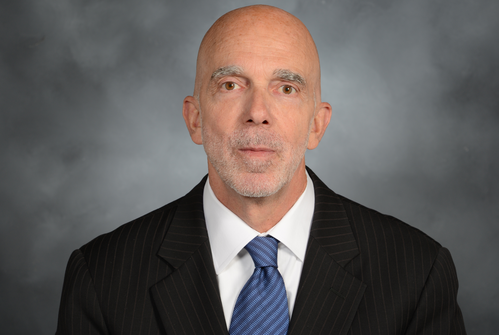Scott Puccino, a distinguished financial and business strategist who has dedicated three decades of his career to Weill Cornell Medicine, has been appointed the institution’s chief financial officer, effective Feb 1.
In his new role, Puccino will financially lead a global health care enterprise embarking on a strategic expansion that will advance the institution’s tripartite mission to care, discover and teach. He will seek to increase Weill Cornell Medicine’s clinical footprint throughout New York City, invest in the institution’s biomedical research activities with the goal of increasing sponsored research opportunities, and oversee the financial planning for a new student residence. He will continue to grow Weill Cornell Medicine’s economic relationship with its clinical partner NewYork-Presbyterian, the bond between them immeasurably stronger amid the COVID-19 pandemic.
Puccino has served as assistant vice provost for financial planning and institutional reporting for the past decade, and has held numerous leadership positions in budget and finance over his 30-year career at Weill Cornell Medicine. He will succeed these financial responsibilities from Stephen M. Cohen, executive vice provost for administration and finance, who will retire in September and whose role is being divided into two. Weill Cornell Medicine is conducting a national search for the second administrative position: executive vice provost and chief operating officer.
“Scott is an outstanding tactician whose deep reservoir of financial and institutional knowledge will be instrumental to preserving Weill Cornell Medicine’s fiscal integrity, stability and resilience,” said Dr. Augustine M.K. Choi, the Stephen and Suzanne Weiss Dean of Weill Cornell Medicine. “I’m thrilled he’s joining my senior leadership team and look forward to continuing to work closely with him as we realize our vision for Weill Cornell Medicine’s long-term growth and success.”
“I’m honored to serve Weill Cornell Medicine as its chief financial officer,” Puccino said. “Our institution is uniquely positioned for further transformation, and we have an amazing dean at the helm. I’ve also been fortunate to work alongside a number of really talented people at Weill Cornell Medicine, whose unwavering support have made this role possible. It’s been an absolute blessing to work for Steve Cohen; he’s been an outstanding leader and an incredible mentor to me.”
As chief financial officer, Puccino will direct the Finance Department and continue to lead the Office of Budget and Financial Strategy, which provides key services including institutional reporting; analyses of budgetary, business and institutional resources; and financial and risk management. To accomplish his vision, he will work closely with colleagues in those offices, along with those from Human Resources; Information and Technology Services; and Capital Planning.
“We have a great team,” he said. He highlighted the expertise of Director of Budget and Institutional Resources Andrew Rosenau; Senior Director of Institutional Reporting and Analytics Susan Vuong; Senior Director of Administration Thomas Blair; Controller Joseph Schwartz and his longtime assistant Nadeige Fortune. He also lauded colleagues Assistant Vice Provost for Operations and Support Services Patrick Gallagher; Chief Information Officer Dr. Curtis Cole; Assistant Vice Provost for Capital Planning Dmitri Konon; and Managing Director of Business Systems and Operations Adam Garriga. He will also work closely with Joanne DeStefano, chief financial officer of Cornell University.
“I look forward to my continued work with them as we prepare Weill Cornell Medicine for what comes next,” he added.
A key component to the institution’s long-term growth centers on increasing its clinical footprint in New York. A recent expansion of physician services across the city has yielded an almost 40 percent increase in clinical revenue in the past five years, Puccino said. Efforts are underway to identify opportunities for future clinical growth, which will have important implications for the institution as a whole: Clinical revenue is the economic engine of Weill Cornell Medicine and provides the financial oxygen for its esteemed research and education programs, he said.
Similarly, research support from the National Institutes of Health has surged 75 percent in the past five years, and the number of investigators who are funded by the NIH has increased by 50 percent, Puccino said.
He will also capitalize on the institution’s $1.5 billion We’re Changing Medicine campaign for long-term growth. The campaign, launched in June 2021, will enable Weill Cornell Medicine to invest in all three parts of its mission, which includes a precision health enterprise, updated biomedical research space and a new student residence. Puccino was also instrumental in conceptualizing and implementing the institution’s expanded scholarship program that provides debt-free education to medical students in financial need.
Puccino will help evaluate the institution’s real estate investments, ensuring that Weill Cornell Medicine’s leases for its administrative offices reflect current and future need.
“This is an amazing trajectory—we’re firing on all cylinders—and we want to keep up the momentum so that we don’t plateau,” he said. “Visionary leadership from our dean and from the Board of Fellows have led us to this moment, and will be critical to us reaching the next level.”

